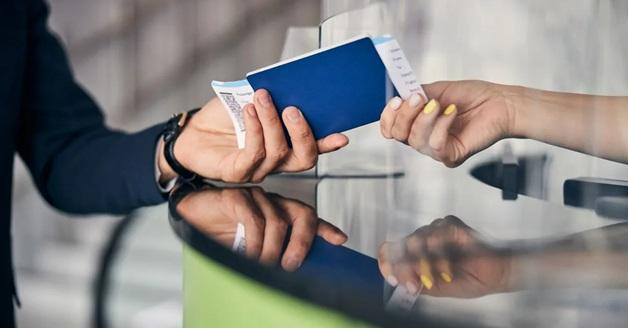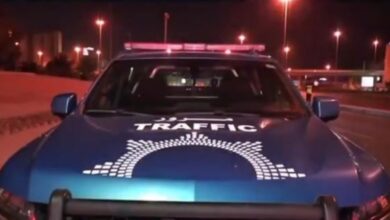
• Kuwait airport authorities report a rising trend of passengers presenting fake tickets, either fabricated to resemble originals or canceled reservations with no confirmed bookings.

By P.N.J Kumar
CEO of Caesars Travel Group – Kuwait & India
The rise of fake flight tickets has become a growing concern in the travel industry. These counterfeit tickets, created using online tools, closely resemble real airline tickets.
Many passengers unknowingly hold these fake tickets, only to be denied check-in at airports because the tickets have no valid confirmation or seat assignments. Often, these passengers are deceived by untrustworthy travel agents or middlemen who claim to assist with ticket bookings, only to take their money.
As a result, travelers lose their hard-earned money, and their entire travel plans are disrupted. They are forced to buy new tickets, often at higher prices due to limited availability, especially as the departure date approaches. The previous fake tickets are non-refundable, as they are not recorded in the airline’s system.
According to airport authorities in Kuwait, this issue is becoming increasingly common, with passengers regularly presenting fake tickets—either fabricated to look like original ones or simply reservations that were later canceled, leaving no confirmed bookings in the system.
This issue should be taken seriously, as there are many accusations against travel agents, with passengers mistakenly believing that travel agents are knowingly involved in creating fake tickets. This creates distrust within the travel industry and makes it harder for customers to feel confident about their travel arrangements.
To some extent, a few unprofessional travel agents are involved, but it depends on the type of agents you approach, as some seasonal agents’ credibility is always in question. That’s why it’s important to “Know Your Source” when buying a ticket. Reputable booking platforms are far less likely to sell fake tickets compared to lesser-known agencies or individual sellers.
One of the main reasons for the rise in fake tickets is the shift towards electronic tickets, which complicates the situation, as it has become so easy for anyone to create fake documentation.
So, how can passengers avoid fake tickets? As travel becomes more digitized, the challenge of fake tickets is growing. Therefore, it’s crucial to educate passengers to avoid falling into these scams, as there is a racket operating behind the scenes to cheat them.
Distinguishing between a genuine ticket and a fake one is becoming increasingly tricky, but there are some telltale signs to look out for:
- Never approach any freelancer or middleman for your airline tickets.
- Freelancers and middlemen may offer tickets at huge discounts compared to the prevailing market fare, but don’t fall into these traps. Offering such large discounts is itself a red flag. While there may be a narrow fare difference between travel agents, huge discounts should raise suspicion, as they often indicate an attempt to grab your money. While you may be tempted to cut costs or secure travel arrangements, using fraudulent documents can lead to serious legal trouble.
- Once you make a reservation with a travel agent, make sure to get a customized ticket copy from them (the ticket should always have the travel agent’s monogram with a complete address).
- Always be aware that those attempting to cheat you may include their own or someone else’s contact number on the fake booking/ticket. Ensure that your own contact number is inserted in the booking.
- Make sure the travel agent staff who issued the ticket includes the airline’s telephone number on the ticket and booking reference (PNR). Counter-check with the airline to confirm whether the booking is active. You should do this on the same day the ticket is purchased, or at least by the next day. This will ensure that you have a live and confirmed booking for your travel. Don’t wait until the day before your travel date to call the airline, as it may be more difficult to resolve last-minute issues.
- When you call the airline, make sure to confirm two things: 1) Is the booking confirmed? 2) Have the tickets been issued? Travelers can also verify the legitimacy of the ticket using the PNR on the airline’s official website, as calling can sometimes be difficult due to long wait times. Many airlines use dynamic QR codes on their e-tickets. These codes change frequently and are linked to a specific flight itinerary, making it nearly impossible for counterfeiters to copy.
- Mobile App Verification: Many airlines’ mobile apps offer real-time ticket verification features. You can scan your ticket using the airline’s database for peace of mind before heading to the airport.
- Never give the ticket money to a middleman, freelancer, or even a travel agent’s staff. A staff member may also be involved in cheating you. That’s why, we emphasize, don’t pay money to staff—always pay directly to the travel agency, preferably to an official cashier or the relevant authority.
- If possible, visit the travel agent in person to collect your ticket. Ensure you receive a receipt for the money paid. This serves as evidence of your ticket purchase. Without it, you have no claim to the money paid.
- If you cannot visit the travel agent in person, request the ticket copy via WhatsApp or email along with the payment link details to settle the payment.
- Do not send money to any personal account of a staff member or middleman; always pay directly to the travel agent’s account.
- Check with your bank account to confirm that the money has been transferred to the travel agent.
- Finally, after confirming the payment has been transferred to the travel agent, contact them to send you a copy of the receipt for your records. (If possible, collect the original receipt.)
If you are able to complete the above cycle, you can avoid, to a certain extent, unknowingly purchasing fake tickets that could cause substantial financial losses, denial of boarding, and disruption to your entire travel plans. Additionally, you may have to spend extra money to buy new tickets.
Not only are airline fake tickets a concern, but visa applications are also often scrutinized, and using fake flight documents could result in permanent denial of entry to a country. This is not just a minor inconvenience; it could affect future travel plans to other nations that share immigration information.
Moreover, many travel insurance policies explicitly exclude coverage for losses incurred due to illegal activities, including the use of fake tickets. So, not only could you face legal trouble, but you might also bear the financial burden of any problems arising from these fraudulent documents.
At Caesars Travel Group, Spread the Word is launching public awareness campaigns to warn travelers about the dangers of buying tickets from unofficial sources. These campaigns emphasize the importance of “How to Avoid Travel Scams, Buying Fake Tickets, etc.” We have explained the details above, as the ease of creating and distributing fake tickets is increasing. Therefore, it is essential for travelers to exercise caution and follow the above guidelines to avoid the financial burden and protect their travels as safely as possible.




























